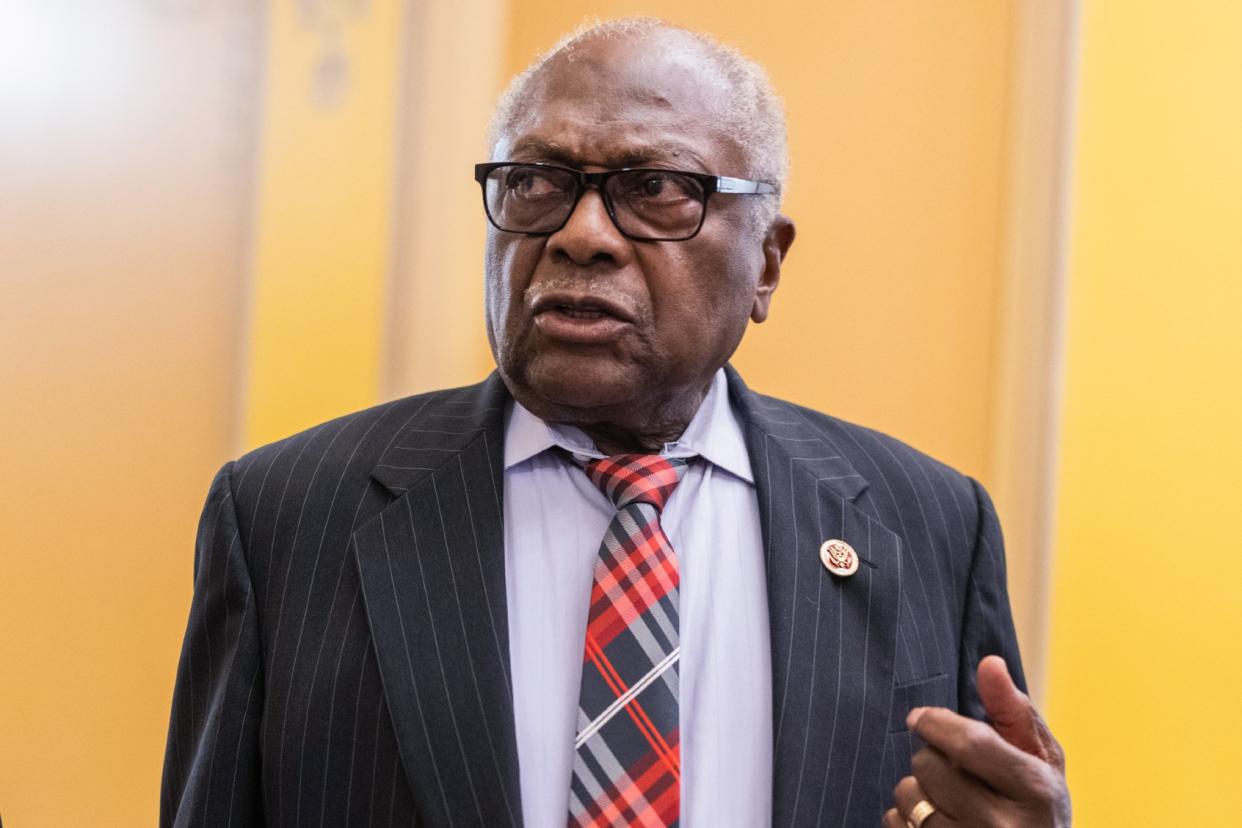Rep. Clyburn weighs-in on Trump's backhanded "Black jobs" comment

- Oops!Something went wrong.Please try again later.
During Thursday night's shambling vs. rambling first televised presidential debate of 2024, which aired on CNN to 20-year record low debate viewership, Donald Trump spoke of undocumented immigrants "taking Black jobs," causing many to wonder . . . what exactly is a "Black job?"
Speaking to CNN's Dana Bash — a moderator for the debate, along with Jake Tapper — Rep. James Clyburn (D-S.C.) spent a portion of his appearance on "State of the Union" Sunday weighing-in on the backhanded nature of Trump's comment to Biden during the first of two scheduled debates, while propping up the current president in his continued fight against the former as many are calling for him to step out of the race for re-election.
"Joe Biden has been talking about this. He mentioned it the other night. Donald Trump is being Donald Trump," Clyburn said. "He has a very, very, very low opinion of people of color. Black, brown, whatever color. He has a low opinion of Black people. He's demonstrated that all of his life. And I would like to hear from some of his Black supporters why they will not have these discussions about what this man has done to Black women . . . and Black youth. And what he has done to his own businesses when it comes to Black people."
In 2019, Clyburn highlighted one of Trump's many racially fueled comments — specifically one in which he compared the House impeachment inquiry against him to a “lynching.”
"I really believe this man is prone to inflammatory statements, and that is one word no president ought to apply to himself. I've studied presidential history quite a bit, and I don't know if we've ever seen anything quite like this," he said in response. "I am not just a politician up here. I'm a Southern politician. I'm a product of the South. I know the history of that word. That is a word that we ought to be very, very careful about using.”


